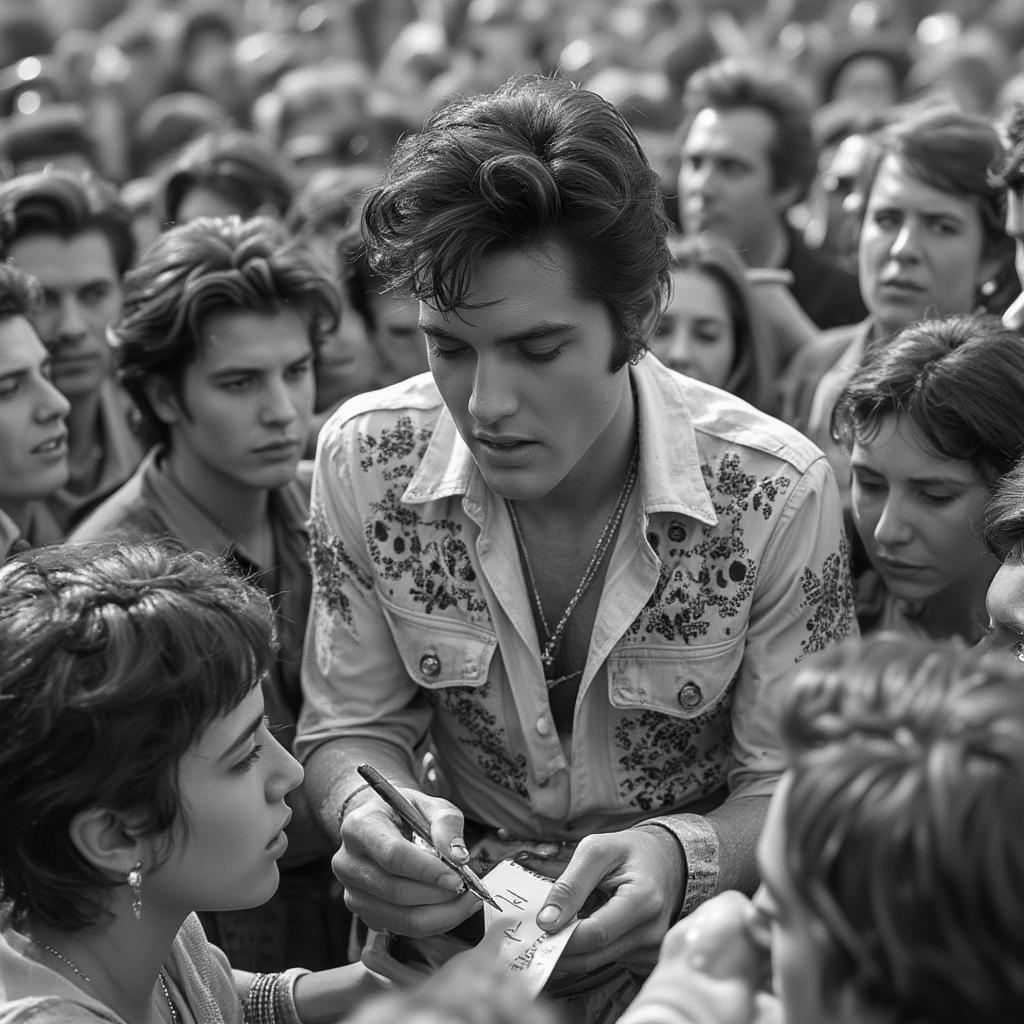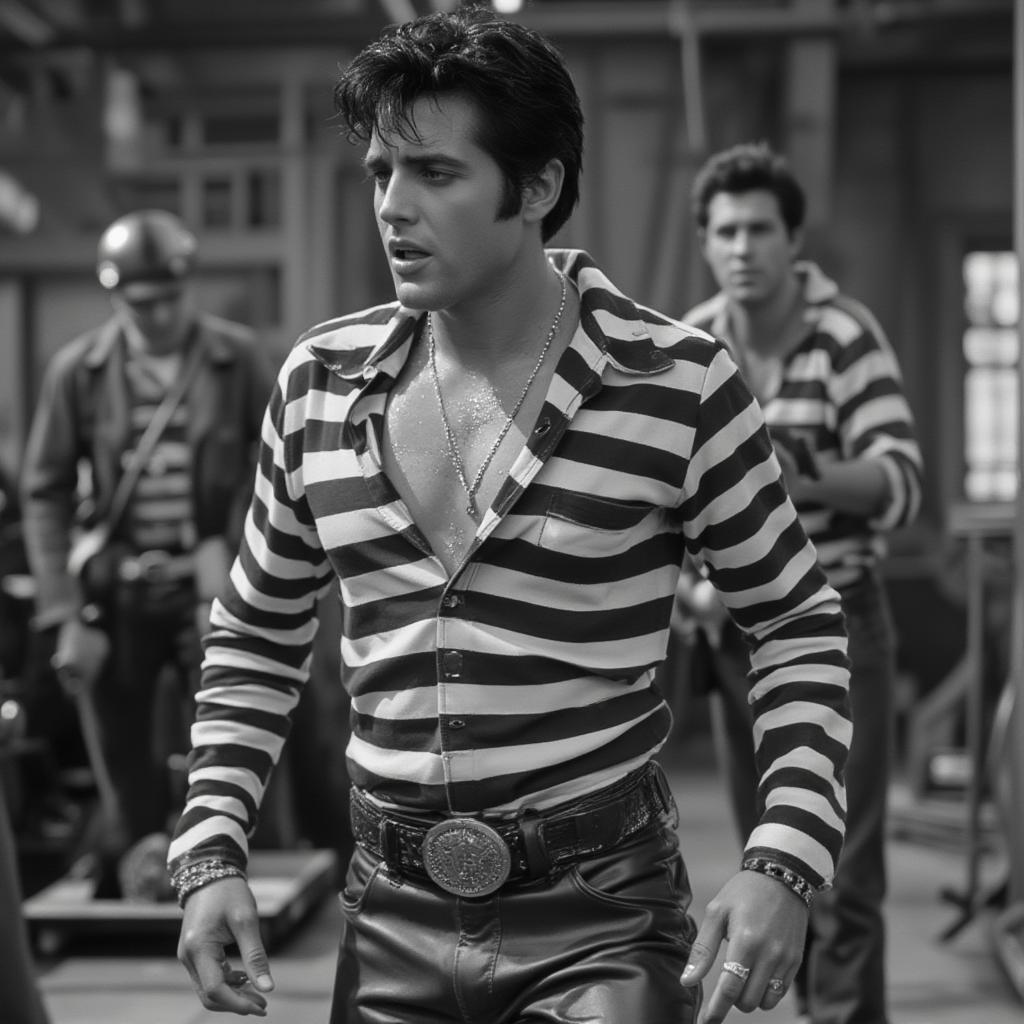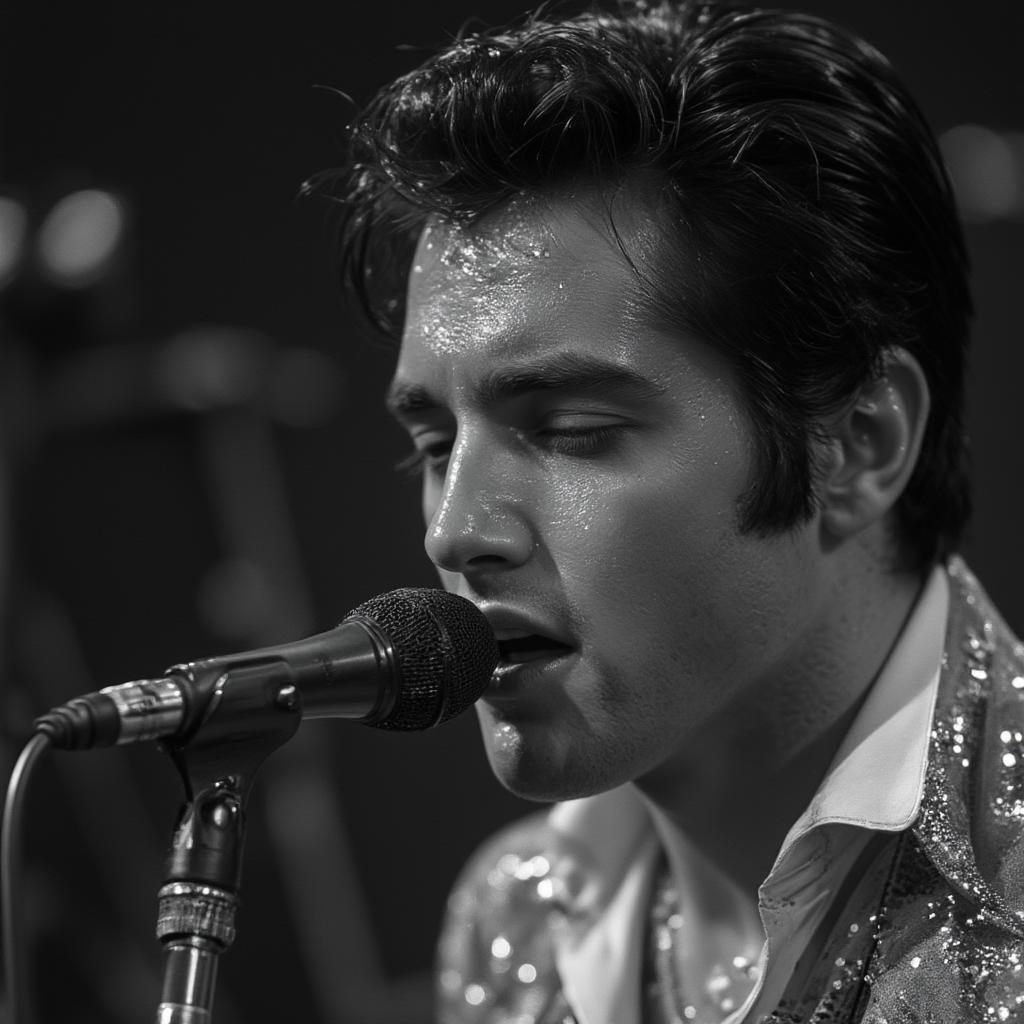Elvis Blue Songs: Exploring the King’s Melancholy Masterpieces

Elvis Presley, the undisputed King of Rock and Roll, wasn’t just about hip-shaking rhythms and rebellious energy. A significant part of his vast musical catalog delves into the depths of human emotion, particularly sorrow and longing. These are the “Elvis Blue Songs,” a collection of ballads and blues-infused tracks that showcase his remarkable vocal range and emotional depth. They reveal a more vulnerable side of the King, one that resonated deeply with audiences then and continues to captivate listeners today.
This exploration into Elvis’ blue songs will take us beyond the bright lights and energetic performances, into the heart of his musical soul. We’ll uncover the stories behind these melancholic masterpieces, analyze their musical elements, and understand why they remain an integral part of his enduring legacy. This journey into the blues side of Elvis’s music reveals a depth and artistry that solidified his position as a true musical icon. 
Delving into the Heartbreak: Defining Elvis Blue Songs
What exactly constitutes an “Elvis blue song”? While there isn’t a strict definition, these songs generally share common characteristics. They often explore themes of lost love, heartbreak, loneliness, and despair. Musically, they incorporate elements of blues music, such as slow tempos, minor keys, and bluesy chord progressions. Elvis’s delivery in these songs is characterized by raw emotion, vulnerability, and a vocal style that draws heavily from his gospel and blues influences. While rock and roll anthems like “Hound Dog” propelled him to stardom, it was his ability to convey deep emotion in songs like “Heartbreak Hotel” that solidified his connection with audiences. Similar to the best of elvis presley, the blue songs demonstrate the breadth of Elvis’s talent.
The Blues Influence on Elvis’s Music
Elvis’s upbringing in Tupelo, Mississippi, exposed him to a rich blend of musical genres, including gospel, country, and blues. The blues, with its emphasis on raw emotion and storytelling, profoundly impacted his musical style. He absorbed the soulful vocals and melancholic melodies of blues legends like B.B. King and Howlin’ Wolf, incorporating these elements into his own unique sound. This fusion of blues with other genres helped create the rock and roll revolution, but the blues influence remained a constant throughout Elvis’s career, especially in his slower, more introspective tracks.
Why Did Elvis Sing the Blues?
Elvis’s connection to the blues wasn’t merely a stylistic choice; it was a reflection of his own emotional landscape. He had a deep understanding of human suffering and a remarkable ability to channel those feelings into his music. His personal experiences with loss, heartbreak, and the challenges of fame likely contributed to his affinity for the blues. It’s this genuine emotional connection that allows his blue songs to resonate so powerfully with listeners across generations. For a deeper understanding of his live performances, explore elvis presley elvis recorded live on stage in memphis.
The Emotional Power of Elvis Blue Songs
“Can you feel the blues when Elvis sings?” This question is often asked by fans and music critics alike, and the answer is a resounding yes. Elvis’s ability to convey raw emotion through his voice is undeniable. He could make a listener feel the pain of heartbreak, the loneliness of isolation, and the yearning for lost love. This emotional authenticity is a key ingredient in the enduring appeal of his blue songs. It’s a testament to his artistry that these songs continue to touch the hearts of listeners decades after they were first recorded.
Exploring the King’s Melancholy Catalog: Notable Elvis Blue Songs
There are numerous “Elvis blue songs” scattered throughout his discography. Some of the most notable examples include “Heartbreak Hotel,” “Blue Moon,” “Are You Lonesome Tonight?,” “Love Me Tender,” “Always on My Mind,” and “Blue Christmas.” Each of these songs showcases Elvis’s unique ability to infuse the blues with his own distinctive style. From the raw emotion of “Heartbreak Hotel” to the tender vulnerability of “Love Me Tender,” these songs represent a significant and essential part of Elvis’s musical legacy. To dive into a specific love song, check out i can t help for falling in love with you.
“Blue Moon of Kentucky”: A Bluegrass Blues Fusion
One prime example of Elvis’s blues influence is his rendition of “Blue Moon of Kentucky.” Originally a bluegrass waltz, Elvis transformed it into a blues-infused rocker, showcasing his ability to blend genres and make a song his own. This groundbreaking interpretation highlighted his musical versatility and cemented his status as a true innovator. You can explore more of his gold records at elvis presley elvis gold records volume 4 songs. His live performances in Las Vegas also showcased this bluesy side; see more at elvis presley live in las vegas songs.
The Enduring Legacy of Elvis Blue Songs
Elvis Presley’s blue songs continue to resonate with listeners today because they tap into universal human emotions. They remind us that even the King of Rock and Roll experienced heartbreak, loneliness, and sorrow. These songs are a testament to his artistry, his vulnerability, and his enduring power to connect with audiences on a deeply emotional level. They are an essential part of his musical legacy, ensuring that his music continues to touch the hearts of generations to come.
FAQ: Elvis Blue Songs
-
What is an Elvis blue song? An Elvis blue song typically incorporates themes of sadness, loss, or longing, often featuring blues-inspired musical elements.
-
What are some of Elvis’s most famous blue songs? “Heartbreak Hotel,” “Blue Moon,” and “Are You Lonesome Tonight?” are among his most renowned blue songs.
-
Where did Elvis’s blues influences come from? Growing up in the Southern United States exposed Elvis to blues music, which deeply influenced his style.
-
Why are Elvis’s blue songs still popular today? Their emotional depth and relatability continue to resonate with listeners.
-
Did Elvis write his own blue songs? While Elvis didn’t write most of his songs, he chose material that reflected his personal connection to the blues.
-
How did Elvis’s blue songs contribute to his overall career? They showcased his versatility and emotional range, solidifying his status as a well-rounded artist.
-
Are there any live recordings of Elvis performing his blue songs? Yes, numerous live recordings capture the raw emotion of Elvis performing his blue songs.
-
What makes Elvis’s interpretation of the blues unique? He blended blues elements with other genres, creating a distinctive sound.
-
Where can I listen to Elvis’s blue songs? Streaming services, record stores, and online music platforms offer access to Elvis’s extensive catalog.




